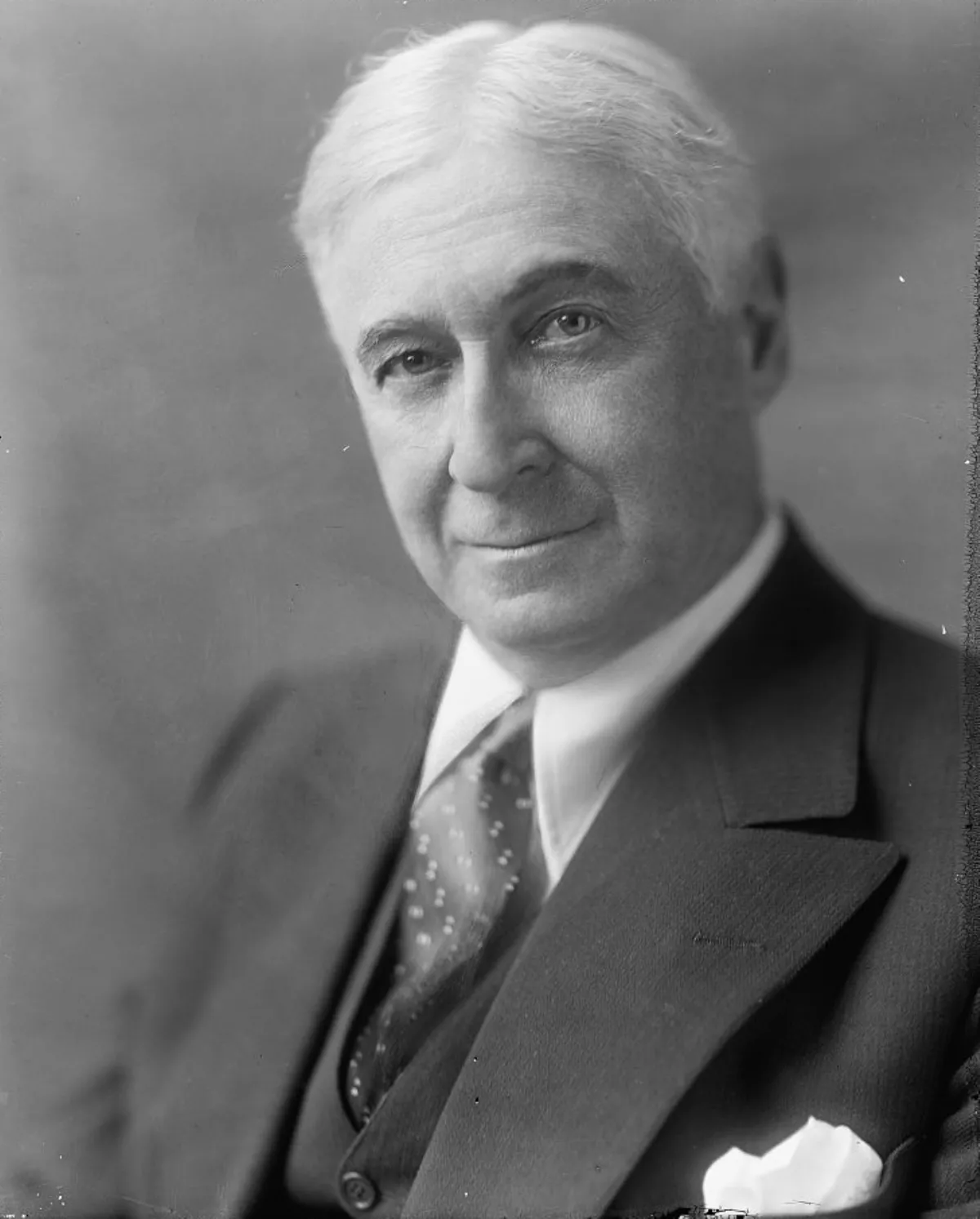 1.
1. Bernard Mannes Baruch was an American financier and statesman.

 1.
1. Bernard Mannes Baruch was an American financier and statesman.
Bernard Baruch made another fortune in the postwar bull market, but foresaw the Wall Street crash and sold out well in advance.
Bernard Baruch was born on August 19,1870, in Camden, South Carolina to a Jewish family.
Bernard Baruch's parents were Belle and Simon Baruch, a physician, Confederate soldier and a member of the Ku Klux Klan.
Bernard Baruch studied at and graduated from the City College of New York.
Bernard Baruch founded the Intercontinental Rubber Company of New York, which dominated the guayule rubber market in the US with holdings in Mexico.
Bernard Baruch began to anticipate a crash as early as 1927 and sold stocks short periodically in 1927 and 1928.
On September 25,1929, after the 1929 post Labor Day peak of the Dow, Bernard Baruch refused to join a bull pool of financiers to support the declining market.
Bernard Baruch advised humorist Will Rogers to exit the market before the crash.
In 1916, Bernard Baruch left Wall Street to advise Woodrow Wilson on national defense and terms of peace.
Bernard Baruch served on the Advisory Commission to the Council of National Defense and, in January 1918, became the chairman of the new War Industries Board.
Bernard Baruch did not approve of the reparations that France and Britain demanded of Germany, and he supported Wilson's opinion that there needed to be new forms of cooperation, as well as the creation of the League of Nations.
Bernard Baruch wanted a more powerful version of the War Industries Board, which he saw as the only way to ensure maximum coordination between civilian business and military needs.
Bernard Baruch was a major contributor to Eleanor Roosevelt's controversial initiative to build a resettlement community for unemployed mining families in Arthurdale, West Virginia.
In 1940, responding to pleas to help Harry Truman's shoestring bid for reelection to the US Senate, Bernard Baruch provided crucial funding.
Bernard Baruch supported what was known as a "work or fight" bill.
Bernard Baruch advocated the creation of a permanent super-agency similar to his old Industries Board.
Bernard Baruch's theory enhanced the role of civilian businessmen and industrialists in determining what was needed and who would produce it.
Bernard Baruch's ideas were largely adopted, with James Byrnes appointed to carry them out.
In February 1943, Roosevelt invited Baruch to replace the widely criticized War Production Board head Donald M Nelson.
Bernard Baruch had long coveted the job, and responded that he only needed to ask his doctor if he was healthy enough for the post.
In 1944, Bernard Baruch commissioned a committee of physicians which developed recommendations for the formal establishment of the medical specialty of Physical Medicine and Rehabilitation and provided over a million dollars of funding to many medical schools to further this cause.
Bernard Baruch's influence began to diminish, as his opinions grew further out-of-step with those of the Truman administration.
Bernard Baruch was well-known and often walked or sat in Washington, DC's Lafayette Park.
Bernard Baruch continued to advise on international affairs until his death from a heart attack on June 20,1965 at his home in New York City, at the age of 94.
Bernard Baruch's grave is at Flushing Cemetery, Flushing, Queens, New York City.
Bernard Baruch owned a string of thoroughbred racehorses and raced under the name "Kershaw Stable".
Bernard Baruch married Annie Griffin, an Episcopalian, of New York in 1897.
Between 1905 and 1907, Bernard Baruch purchased approximately 16,000 acres of the former 18th century Hobcaw Barony, consolidating 14 plantations located on Waccamaw Neck, Georgetown County, South Carolina, between the Winyah Bay and the Atlantic Ocean.
Bernard Baruch developed sections of the property as a winter hunting resort and later sold the property to his eldest child, Belle.
In 1925, Bernard Baruch endowed the Mrs Simon Bernard Baruch University Award to the United Daughters of the Confederacy in memory of his mother, to support scholars who had written unpublished monographs for full-length books on Confederate history.
Bernard Baruch's mother had been an early member of the organization and supported its activities.
Bernard Baruch chose to donate his personal papers to Princeton University out of admiration for Woodrow Wilson and Dean Mathey.